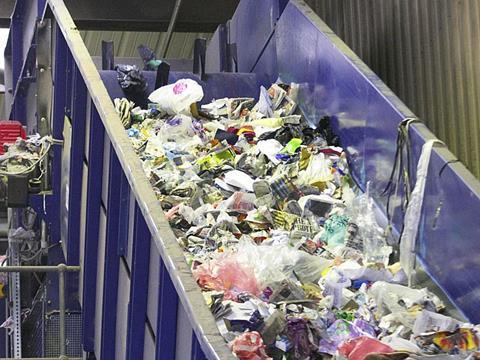
WRAP has published its The UK Plastics Pact Roadmap to 2025, outlining key actions businesses should take to help curb pollution caused by plastic packaging by moving plastics from being a single-use disposable material to a valued resource, in line with the circular economy model, while avoiding unintended environmental consequences of actions such as substitution or blanket removal which could lead to increased greenhouse gas emissions and/or increased food waste.
The actions relate to a series of important milestones aligned with the targets of The UK Plastics Pact, a programme to tackle the issue of plastic waste through collaboration across the entire supply chain; with the UK acting as a testbed for a planned network of country-specific, global Plastics Pacts.
The UK Plastics Pact Roadmap to 2025 provides a framework for all businesses, including members, to deliver the ambitious targets. Together, UK Plastic Pact member businesses are responsible for eighty per cent of plastic packaging sold through UK supermarkets, and half of all packaging placed on the market. The Roadmap is a guide for businesses and others to know what actions need to be taken, by when, and outlines some of the key challenges that will need to be overcome. It has been designed by WRAP as a living document that will evolve over time, reflecting changes in policy and innovations.
The Roadmap also includes commentary on the complementary roles of Government and citizens to ensure the UK moves towards a circular economy for plastics.Achieving the milestones will bring huge benefits for the UK says WRAP but will require tough decisions to be taken and significant investment made. Publication of the Roadmap precedes the forthcoming Resources and Waste Strategy, which is expected to outline policies that will help drive forward the plastics agenda.
Marcus Gover, Chief Executive of WRAP explains; “We have sixty-eight of the UK’s largest businesses and organisations committed to the UK Plastics Pact from retail and brands, manufacturers and hospitality, to the plastic supply sector, recycling and resource management. I’m very impressed with progress made in the first six months since we launched the Pact. This is proving to be a powerful and motivated group. The Roadmap is a real opportunity for them to forge ahead and make change happen at scale, and in significant ways.“
But these targets cannot be delivered by business action alone. It needs policy intervention as well as consumers to play a part. Factors like Extended Producer Responsibility are going to have a profound influence on momentum, and effecting change in areas such as collections, recycling and reprocessing.”
The outcomes of the Roadmap will help reduce confusion as to whether packaging is recyclable; if the targets are achieved all plastic packaging will be recyclable or compostable by 2025.The roadmap also sets interim targets for increasing recycling and recycled content. Achieving this will require investment in the UK recycling infrastructure and would be expected to generate new jobs, while easing the pressure of plastic waste exportation.WRAP has set three key milestones dates: April 2019, the end of 2022 and finally by 2025.WRAP will also look to utilise flagship projects to tackle the barriers to improved sorting, recycling and use of recycled content.
To support this a £1.4 million flagship projects competition was launched at the UK Plastics Pact Summit, in October. The competition forms part of the £20 million Plastic Research and Innovation fund, which was announced by the Chancellor during the Autumn Statement in 2017, to engage Britain's best scientists and innovators towards sustainable approaches to plastics.The need to drive demand for recycled content was highlighted in the recent budget proposal from the Chancellor, which sets out to consult on a new tax to all plastic packaging that doesn’t include at least 30% recycled content. It is hoped that members’ support, coupled with Government intervention, will send a strong signal about recycled content to the market, creating demand to help investment in recycling infrastructure.
Next steps
WRAP will continue to encourage UK Plastics Pact members to work collaboratively to influence design and selection of packaging materials and products; both own label & branded. In the coming months WRAP will publish further guidance on recyclability, including the recyclability of card-based packaging. To achieve the roadmap milestones, members will need to create their own action plans that support each target.
WRAP will monitor progress and identify the opportunities for sharing good practice and convening collaborative action.WRAP is leading several work streams ahead of the first milestone, including the development of a strategy for recycling household film and a number of trial projects, as well as developing criteria for unnecessary and problematic plastics, and options to tackle them.The sustainability experts continue to work with the Ellen MacArthur Foundation to support a global network of Plastics Pacts and has been approached by several international governments and organisations to replicate the model in other countries.










